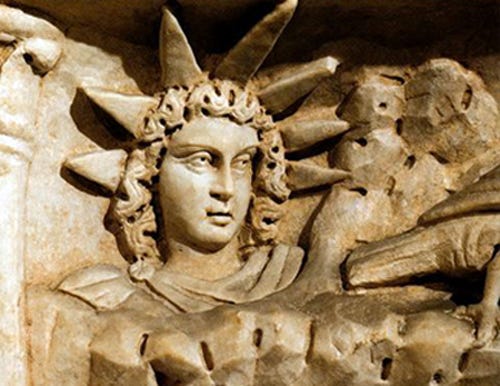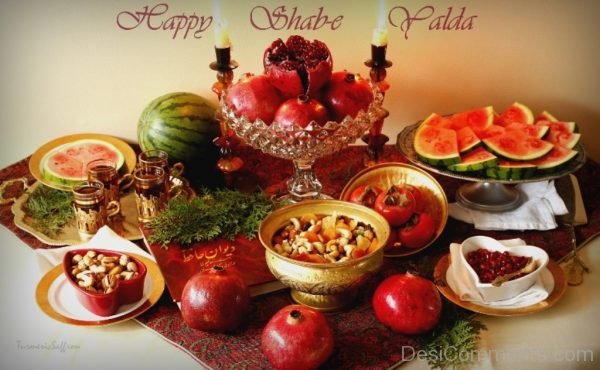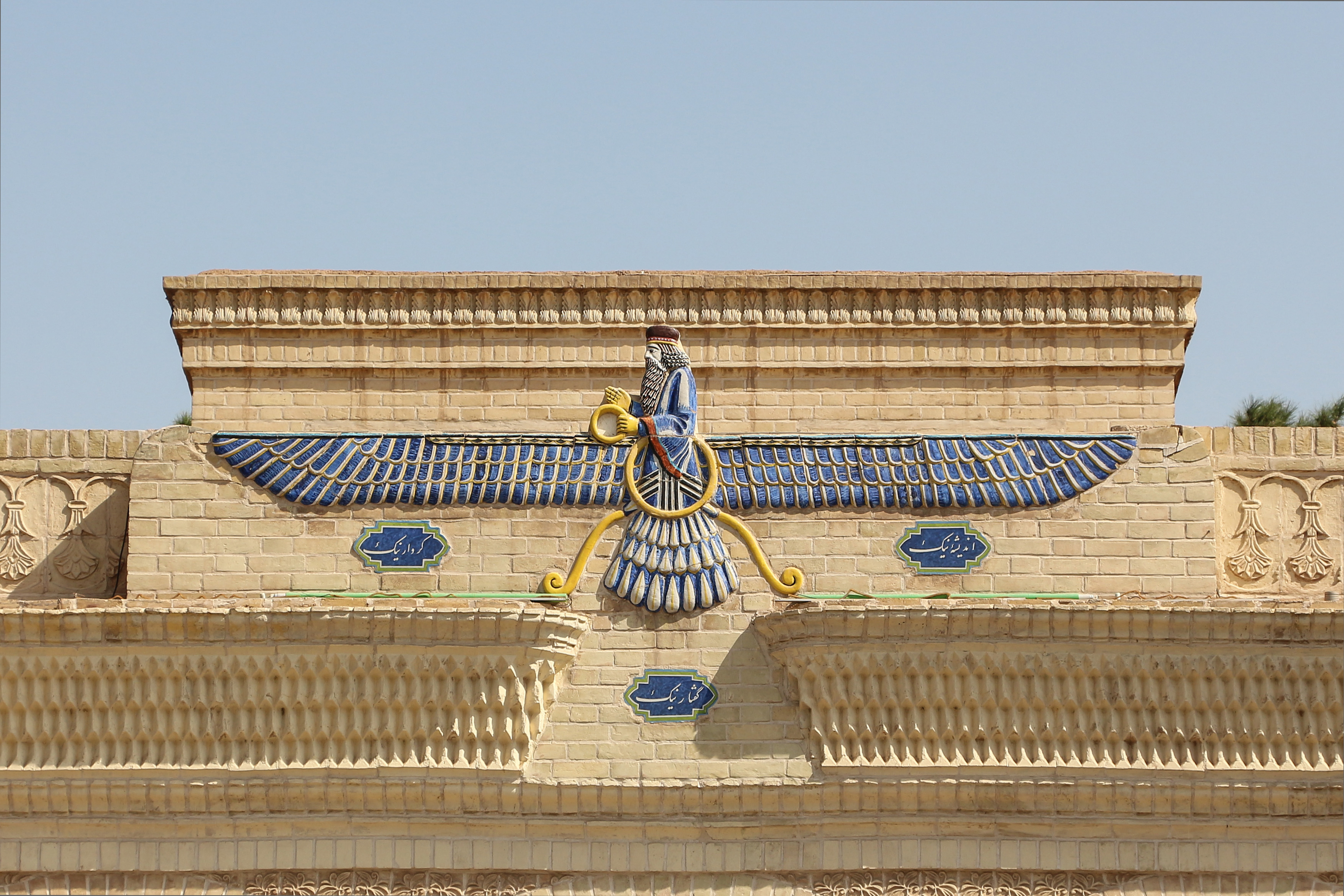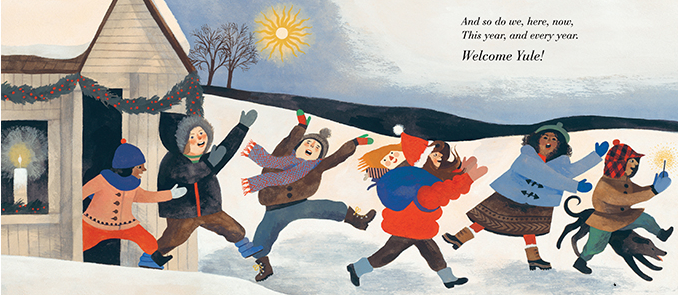Nostalgic Memories of my Childhood Home, remembering Shabe-Yalda: Sumptuous evening of storytelling, poetry, nuts, watermelon, persimons, pomegranates, sitting under koorsi (ancient Persian heating table) as we celebrated the ancient festival of Yalda, the night that we acknowledged the triumph of light over darkness and hope over hopelessness.
'The story of Yalda may be interpreted as a tale of courage and effort during darkness, a triumph of light and human warmth that ultimately causes the spring to bloom in hearts.'
Yalda means "rebirth" (of the sun) and refers to the triumph of light over darkness.
Mithra — Persian goddess of light and creation

Mithra was the god of light, purity, goodness, truth and occupied an important place in the faith of the ancient Aryans, The Persians
The Yalda celebration- A festival that originated more than 5000 years ago in ancient Persia- has great significance in Persian culture, civilisation and customs. It is the eve of the birth of Mithra, the Sun God, who symbolised light, goodness and strength on earth, and thus, it is celebrated as a time of joy. The festival was considered one of the most important celebrations in ancient Persia and continues to be celebrated to this day. Yalda is also celebrated way beyond Iran, in Turkey (mainly by Azeris), Russia (mainly by Dagestanis) Tajikistan, Afghanistan, Azerbaijan and Armenia and in countless other countries where there are large numbers of Persian diaspora, such as Canada, US, Britain, France, Germany, Australia and throughout the Persian Gulf, amongst others.
There is also much documented research and studies by renowned scholars and historians on the commonalities between Yalda, Christmas, and the ancient Persian religions, spiritual traditions and festivals which I have found very fascinating and telling.
This is how, for an example, one of the greatest Persian poets, mystics and philosophers, Sanai, who lived in the tenth century A.D, composed a poem in relation to the commonalities between Yalda and the Christian holiday:
‘Let go of your earthly desire, if you are after prosperity
Since after making a bond with Jesus, Yalda became renowned.’
 Iranians adopted their annual renewal festival from the Babylonians and incorporated it into the rituals of their Zoroastrian religion. The last day of the Persian month Azar is the longest night of the year, when the forces of evil are assumed to be at the peak of their strength.
Iranians adopted their annual renewal festival from the Babylonians and incorporated it into the rituals of their Zoroastrian religion. The last day of the Persian month Azar is the longest night of the year, when the forces of evil are assumed to be at the peak of their strength.
The occasion was celebrated as the festival of ‘Deygan’, which is dedicated to Ahura Mazda on the first day of ‘Dey’.
Ahura Mazda, the lord of wisdom

Faravahar symbol on a Fire Temple in Yazd. Photo:wikipedia
Zoroastrianism the ancient religion of Persia that has shaped the world
Fires would be burnt all night to ensure the defeat of the forces of evil. There would be feasts, acts of charity and prayers performed to ensure the total victory of sun--essential for the protection of winter crops. There would be prayers to Mithra (Mehr) and feasts in his honor, since Mithra is the Eyzad responsible for protecting “the light of the early morning”, known as ‘Havangah’. It was also assumed that Ahura Mazda would grant people’s wishes, especially those desiring an offspring if all rites are performed on this occasion.
In short, Coinciding with the beginning of the winter, Yalda is an occasion to celebrate the end of the crop season. It is today an event to thank the Lord for all blessings and to pray for prosperity in the next year.
Related articles: FESTIVAL OF ZAYESHMEHR (YALDA)
Watch this beautiful Shab-e Yalda Video
Wonderful, inspiring poetry, beautiful pictures, lovely music and more:
University of Michigan - Shab e Yalda Presentation - (HD)
“How we spend our days is, of course, how we spend our lives.”- Annie Dillard
'In a sense, Winter Solstice is a turning point in the battle of dark versus light.'
Happy Shortest Day: From now on is the Season of Love, Light, Hope and Peace
Welcome, Yule!
Happy Winter Solstice!

